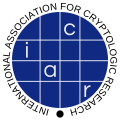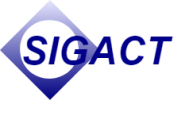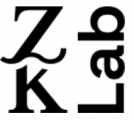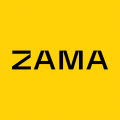Scientific organisers
-
Elizabeth Crites, Web3 Foundation
-
Markulf Kohlweiss, University of Edinburgh
-
Tjerand Silde, Norwegian University of Science and Technology
-
Akira Takahashi, JP Morgan AI Research & AlgoCRYPTCoE
About:
Zero-knowledge proofs (ZKP) are a highly relevant application area of mathematics and theoretical computer science and a thriving area of cryptographic research in the UK and worldwide. Zero-knowledge and probabilistically checkable proofs have long been recognized as groundbreaking theoretical contributions, with the 1993 and 2002 Gödel Prize and the 2012 Turing Award. Recently, ZKP has seen an incredible renaissance with further academic recognition in the 2021 Abel prize and strong industry interest, with whole companies, such as the Electric Coin Company and Starkware, basing their raison d'être on its ideas. As witnessed by the EU GDPR regulation and recent standardisation efforts, zero knowledge has numerous applications within privacy-preserving technologies to ensure privacy in a digital world.
This workshop united zero-knowledge researchers in the UK and Europe and facilitate community building, especially among PhD students and early career researchers. The content that was presented would be published online as a lasting resource. The ultimate objective of the workshop was to have a significant long-term effect on research in zero-knowledge proofs and privacy-enhancing techniques by encouraging connections and creating resources for researchers.
The workshop covered several topics within this field, including classical results, interactive oracle proofs, proof from symmetric primitives, group and pairing-based proof systems such as ZK-SNARKs, lattice-based proof systems, and real-world applications.
Sponsors
We are very grateful to the International Association for Cryptologic Research for supporting the workshop as an IACR Cryptology School, to Input Output Global (IOG), Edinburgh ZK Lab, and Zama for sponsorship, and to the ACM Special Interest Group on Algorithms and Computation Theory for providing us with a SIGACT Community Grant.
Programme:
All times are British Summer Time (BST).
| MONDAY 2 SEPTEMBER 2024 | ||
| Registration and Refreshments | ||
| Welcome and Housekeeping | ||
| Jonathan Katz, Google / University of Maryland | Introduction 1 | |
| Refreshments | ||
| Michele Ciampi, University of Edinburgh | Introduction 2 | |
| Lunch | ||
| Michele Ciampi, University of Edinburgh | Introduction 3 | |
| Refreshments | ||
| Jonathan Katz, Google / University of Maryland | Introduction 4 | |
| Welcome Reception | ||
| TUESDAY 3 SEPTEMBER 2024 | ||
| Carsten Baum, Technical University of Denmark | ZK from Symmetric Primitives 1 | |
| Refreshments | ||
| Carsten Baum, Technical University of Denmark | ZK from Symmetric Primitives 2 | |
| Refreshments | ||
| Peter Scholl, Aarhus University | ZK from Symmetric Primitives 3 | |
| Lunch | ||
| Q&A Session | ||
| Public Lecture | What do Cryptographers Work On? by Jonathan Katz | |
| WEDNESDAY 4 SEPTEMBER 2024 | ||
| Carla Ràfols, Universitat Pompeu Fabra | Group/pairing zk-SNARKs 1 | |
| Refreshments | ||
| Carla Ràfols, Universitat Pompeu Fabra | Group/pairing zk-SNARKs 2 | |
| Refreshments | ||
| Arantxa Zapico, Ethereum Foundation | Polynomial Commitments | |
| Lunch | ||
| Lightning Talks | Robi Pedersen; Yizhou Yao; Sunniva Engan; Mikhail Volkhov; Megan Chen; Anaïs Barthoulot; Marek Sefranek; Scott Griffy; Lorenzo Martinico | |
| Refreshments | ||
| Anca Nitulescu, Input Output | Zero-knowledge proofs for Blockchains | |
| THURSDAY 5 SEPTEMBER 2024 | ||
| Lisa Kohl, CWI Amsterdam | Compressed Sigma Protocols | |
| Refreshments | ||
| Lisa Kohl, CWI Amsterdam | Lattice-Based Sigma Protocols | |
| Refreshments | ||
| Ngoc Khanh Nguyen, King's College London | Exact Lattice-Based Zero-knowledge proofs | |
| Lunch | ||
| Ngoc Khanh Nguyen, King's College London | Towards Fast Verification: Polynomial Commitments from Lattices | |
| Refreshments | ||
| Lightning Talks | Caroline Sandsbråten; Audhild Høgåsen; Hans Heum; Emil August Hovd Olaisenl; Artem Grigor; Mahdi Sedaghat; Jayamine Alupotha; Thomas den Hollander. | |
| Workshop Dinner | ||
| FRIDAY 6 SEPTEMBER 2024 | ||
| Dario Fiore, IMDEA Software Institute | Zero-Knowledge Proofs for Secure and Private Machine Learning | |
| Refreshments | ||
| Dario Fiore, IMDEA Software Institute | Zero-Knowledge Proofs for Verifiable Computation on Encrypted data | |
| Refreshments | ||
| Anca Nitulescu, Input Output | Zero-knowledge Proofs: How fast can we go? | |
| Lunch and End of Workshop |





